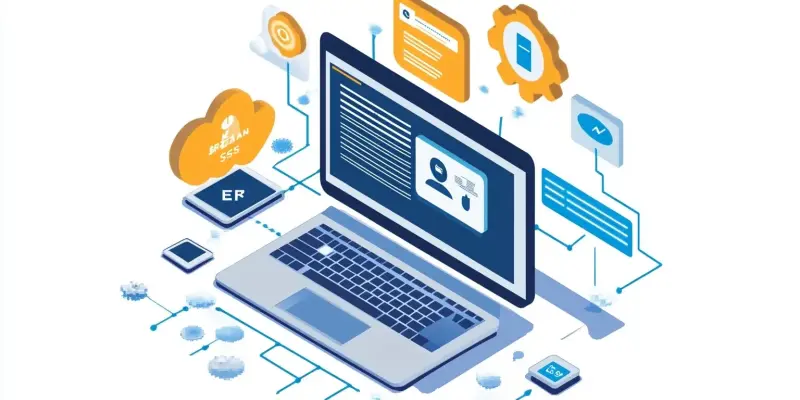The retail industry is evolving quickly, with changing customer expectations, emerging competition, and the need for seamless operations across multiple sales channels. To stay competitive in the marketplace, retailers must leverage technology to enhance customer experiences, optimize operations, and boost profitability. Microsoft Dynamics 365 is a powerful suite of cloud-based applications that can transform retail operations by offering an integrated solution combining ERP and CRM capabilities. Below, we’ll explore how you can utilize Microsoft Dynamics 365 to revolutionize your retail operations, following a systematic implementation process.
Evaluate Business Requirements
The first step in integrating Microsoft Dynamics 365 into your retail business is evaluating your business needs and identifying primary challenges that the solution aims to address. This crucial step involves understanding the specific pain points and requirements that your current systems do not meet. For instance, you might face issues with managing inventory efficiently, providing personalized customer service, or handling multiple sales channels seamlessly. By conducting a thorough analysis, you can pinpoint areas that need improvement through the capabilities offered by Dynamics 365.
A comprehensive requirements evaluation should involve input from various departments including marketing, sales, customer service, and supply chain management. This cross-functional approach ensures that all perspectives are considered and the solution you select caters to the holistic needs of your organization. During this phase, it is helpful to prioritize your needs and categorize them into must-have features and nice-to-have functionalities.
Select the Appropriate Solution
After identifying your business requirements, the next step is selecting the appropriate Microsoft Dynamics 365 solutions for your retail business. Dynamics 365 offers a range of modules, including Dynamics 365 CRM for Retail, Dynamics 365 ERP for Retail, and Dynamics 365 Commerce. Retailers need to decide whether they require CRM functionalities for customer engagement management, ERP capabilities for financial and operational insights, or a combination of both to achieve a comprehensive transformation.
For example, if your primary focus is enhancing customer engagement and marketing efforts, Dynamics 365 CRM for Retail, with its advanced customer insights and personalized marketing features, would be a suitable choice. On the other hand, if you are looking to improve financial management, inventory control, and streamline store operations, then Dynamics 365 ERP for Retail is the answer. For a fully integrated approach, combining these solutions can offer seamless end-to-end capabilities across all aspects of your retail operations.
Collaborate with a Specialist
Once you have identified the right combination of Dynamics 365 solutions, it’s essential to collaborate with experienced Microsoft partners to ensure a seamless implementation. Working with a specialist not only provides you with expertise in the platform but also offers support tailored to your specific business needs. Microsoft partners, like Dynamics Square, bring valuable insights into best practices, potential pitfalls, and optimization strategies to maximize the benefits of your Dynamics 365 deployment.
Having a specialist on board can make the implementation process smoother, from initial setup to ongoing support. They can help customize the software to align perfectly with your business processes, eliminating inefficiencies and enhancing the user experience. Moreover, a specialist can provide training and support to your team, ensuring that all members are well equipped to utilize the platform’s features effectively. Collaborating with experts also helps in addressing any issues promptly and ensuring minimal disruption to your operations during the transition.
Data Transfer and Integration
A critical aspect of implementing Microsoft Dynamics 365 is ensuring smooth data migration from your existing systems. Accurate data transfer is essential for maintaining the integrity of your business operations and ensuring that all historical data is easily accessible in the new system. This process involves mapping out data fields and ensuring compatibility with Dynamics 365, as well as performing data cleansing to eliminate redundant or outdated information.
In addition to data transfer, integrating Dynamics 365 with third-party solutions you may already be using is vital. This could include integration with e-commerce platforms, payment gateways, or legacy ERP systems. Seamless integration ensures that all your systems communicate effectively, providing a unified view of your business operations. Dynamics 365’s robust API capabilities facilitate this integration, making it possible to connect various applications and streamline your workflows efficiently.
Employee Education
After the technical setup and data integration, employee education is a pivotal step in the successful implementation of Microsoft Dynamics 365 in your retail business. Training your staff to fully utilize the platform’s features ensures that they can take advantage of the system’s capabilities to improve their performance. Comprehensive training programs should encompass all aspects of the platform, from basic navigation to advanced functionalities like AI-driven analytics and automated processes.
Investing in employee education not only enhances their skill set but also boosts their confidence in using the new system. This, in turn, can lead to better customer service, more accurate data entry, and smarter decision-making. By setting up ongoing training sessions, workshops, and access to online resources, you can ensure continuous learning and adaptation to new features as they become available. Encouraging feedback from employees can also help identify areas where additional training might be needed or where processes can be further optimized.
Monitor and Refine
The retail industry is undergoing rapid changes, driven by shifting customer expectations, increasing competition, and the necessity for smooth operations across various sales channels. To remain competitive, retailers need to adopt technology that enhances customer experiences, streamlines operations, and increases profitability. Microsoft Dynamics 365 offers a robust suite of cloud-based applications designed to revolutionize retail operations. This comprehensive solution integrates ERP and CRM functionalities, providing retailers with the tools they need to excel. Through the strategic implementation of Microsoft Dynamics 365, retailers can transform their businesses, achieving seamless operations and improved customer satisfaction. By embracing this technology, retailers can stay ahead of the competition, meeting evolving customer demands and driving success in the marketplace.

